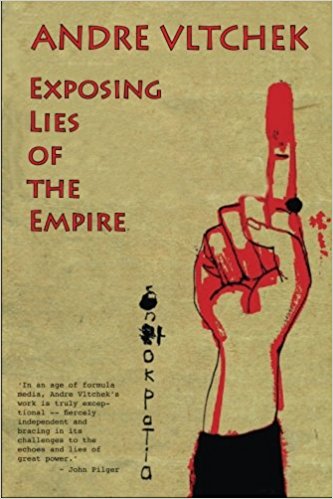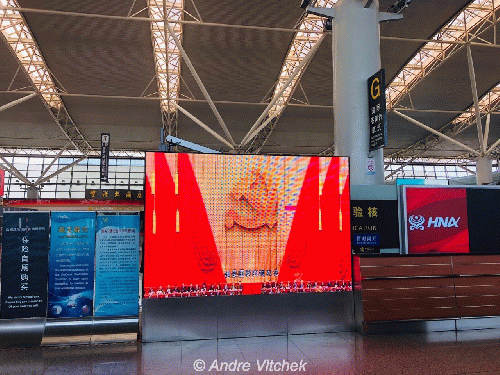This piece was reprinted by OpEd News with permission or license. It may not be reproduced in any form without permission or license from the source.
But above all, the West hates China's growing influence on the world, particularly among the countries that have been for centuries brutalized and plundered by European and North American corporations and governments. And it is scared that they will, eventually, fully understand that China is determined to stop all forms of imperialism, and to eradicate poverty in all corners of the world.
*
Xi'an is where the old and new Silk Roads have their starting points. The new one is called the Belt Road Initiative (BRI), and very soon it will account for tens of thousands of kilometers of railroads and roads connecting and crisscrossing Asia, Africa and Europe, pulling out of misery billions of men, women and children. Once completed, everybody will benefit.
But that is not how the West likes it. 'Everyone benefiting' is a totally foreign, even hostile concept, at least in the Western capitals. Only the West, plus those few 'chosen' and highly obedient countries (including Japan, South Korea and Singapore) have been, until now, allowed to prosper, forming a strictly 'by appointment only' club of nations.
China wants everyone to be rich, or at least not poor.
Most Asians love the idea. Africans love it even more. The new elegant train station in Nairobi, Kenya, is a new symbol, a promise of a better future. Tram lines in Addis Ababa, the construction of a high-speed train line that will go through Laos, all these are marvels unimaginable only a few years ago.
The world is changing, mainly thanks to the determined efforts of China and Russia to finally destroy Western colonialism (the 'project' that began so well right after WWII, but, except on paper, was never fully completed).
*
Xi'an is rising. In the West, they used to say that life in China is improving, but only for Beijing, Shanghai and Guangdong.
Later they said, for the Pacific coast, OK, life is better, but go further West" Xi'an, Chengdu, Kunming and other cities followed.
Then, the propagandists regrouped: 'Chinese cities are doing well, but the countryside is suffering'. Then came President Xi's brainchild - 'Ecological civilization', and decisive reforms aimed at improving the standards of living and quality of life all over the most populous country on earth. In 2018, for the first time in modern history, there was a reverse migration from Chinese cities, to the rural areas.
One has to repeat again and again, until it sinks into people's brains: After 2020, there will be no extreme misery in China.
In our upcoming book "China and Ecological Civilization", a dialogue between me and leading philosopher John Cobb Jr, John who has been working very closely with the Chinese government on issues of environment and education, explained:
"As I compare China's success in giving serious attention to the well-being of its natural environment and needy citizens with that of European countries, my reason for betting on China is that I have some confidence that it will maintain governmental control of finance and of corporations generally. If it does this, it can also control the media. Thus, it has a chance of making financial and industrial corporations serve the national good as perceived by people not in their service. Less centralized governments are less able to control the financial and other corporations whose short-term interests may conflict with the common good."
(Note: You can view every article as one long page if you sign up as an Advocate Member, or higher).







